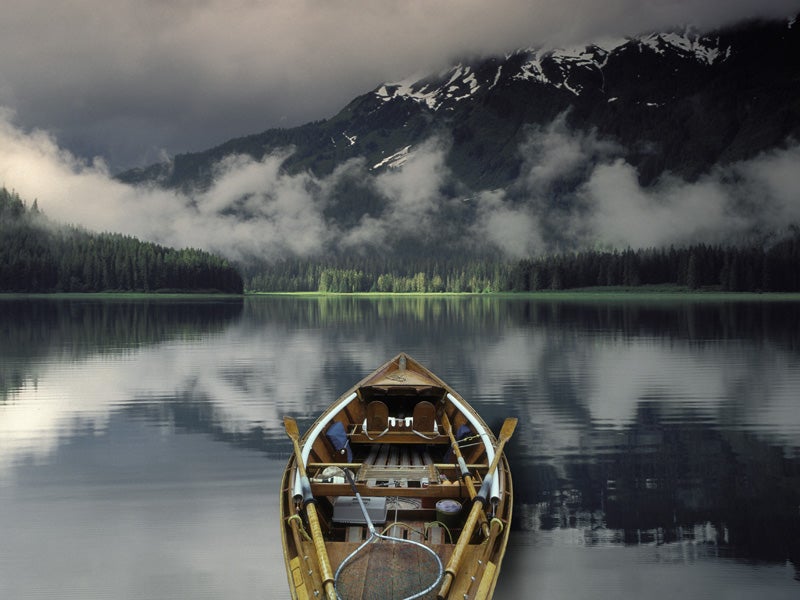Ninth Circuit Ensures Protection of Roadless Areas in Alaska’s Tongass National Forest
Victory
—Court rejects attempts to exempt the Tongass from the Roadless Rule
Contact
In a major victory for America’s largest rainforest, the U.S. Court of Appeals for the Ninth Circuit struck down a Bush administration exemption of the Tongass National Forest from the “Roadless Rule,” a landmark conservation rule adopted in 2001 to protect nearly 60 million acres of wild national forests and grasslands from new road building and logging. The Court held the Bush administration failed to provide a reasoned explanation for reversing course on the Tongass. It concluded the Roadless Rule “remains in effect and applies to the Tongass.”
“Today’s decision is great news for the Tongass National Forest and for all those who rely on its roadless areas. The remaining wild and undeveloped parts of the Tongass are important fish and wildlife habitat and vital to residents and visitors alike for hunting, fishing, recreation, and tourism, the driving forces of the regional economy,” said Earthjustice attorney Tom Waldo.
“This decision saves the Tongass—again—and not just the Tongass, but hopefully, all old growth forests,” said Niel Lawrence, senior attorney and Alaska director for the Natural Resources Defense Council. “It ensures that all of this forest’s wildlands will be saved from timber sales and destructive logging roads.”
“The decision is consistent with the real transition Southeast Alaska has already made toward a diverse and resilient regional economy,” said Southeast Alaska Conservation Council Executive Director Malena Marvin. “We hope that our leaders, including Senator Lisa Murkowski, Governor Bill Walker, and Forest Supervisor Earl Stewart recognize that longterm economic prosperity for local communities means keeping the Tongass’s wild salmon strongholds working for fishing families, and supporting our booming tourism and fishing industries.”
“We applaud the court for striking down the misguided Bush-era plan to exempt the Tongass National Forest from the Roadless Rule. Today’s decision ensures that this stunning wilderness will continue to be protected for the wildlife who inhabit it and those who enjoy it—for this generation and those that follow,” said Aaron Isherwood, Managing Attorney for the Sierra Club.
“The roadless areas on the Tongass are important habitat for wildlife species found only in America’s rainforest,” said Rebecca Noblin, Alaska director of the Center for Biological Diversity. “This decision protects some of the last remaining stands of old-growth temperate rainforest in the world. Now it’s time to put a stop to all old-growth logging on the Tongass to save unique wildlife like Alexander Archipelago wolves.”
“The Tongass’ roadless rainforests are a national treasure, and the last, best intact wildlands in our bioregion,” said Gabriel Scott, Alaska legal director for Cascadia Wildlands. “We are pleased with the court’s decision, and urge the State of Alaska to stop with these wasteful legal battles and recognize that it is a privilege, not a burden, to conserve these national treasures for future generations.”
“Roadless areas in the Tongass provide important habitat for at-risk species, including the Alexander Archipelago wolf,” said Senior Policy Advisor for Federal Lands Peter Nelson at Defenders of Wildlife. “Today’s decision is a pivotal win for the conservation of wildlife, watersheds and forests in the Tongass.”
“The roadless rule will help small businesses like ours,” said Hunter McIntosh of The Boat Company, which operates a small tour business in the region. “The natural values of intact watersheds are essential for the visitor industry in Southeast Alaska. Very few folks will pay to go see clearcuts and decaying logging roads. There are thousands of jobs in Southeast Alaska in recreation and tourism. And there are thousands more in the seafood industry, which depends critically on salmon spawning streams in the old growth forests of the Tongass.”
This case originated in 2009 when a diverse coalition of Alaska Native, tourism industry, and environmental organizations, represented by attorneys from Earthjustice and Natural Resources Defense Council, challenged the Bush Administration’s 2003 rule “temporarily” exempting the Tongass from the Roadless Rule. The Roadless Rule blocks expensive and controversial new logging roads and clearcuts in intact forests while allowing other economic development—including hydropower, transmission lines, mining, and tourism projects—to proceed. The Tongass—occupying most of Southeast Alaska—is the nation’s largest and wildest national forest. In 2011, a federal judge in Alaska ruled in the coalition’s favor, vacating the Tongass exemption and reinstating the Roadless Rule’s application to the Tongass. The State of Alaska then appealed the decision to the Ninth Circuit Court of Appeals, where a 3-judge panel last year reversed the Alaska judge’s opinion by a 2-1 split vote. Today’s order affirmed the district court’s decision and maintains protections for the roadless areas of the Tongass.
Attorneys from Earthjustice and the Natural Resources Defense Council represent the following groups in the case: Organized Village of Kake, The Boat Company, Alaska Wilderness Recreation and Tourism Association, Southeast Alaska Conservation Council, Natural Resources Defense Council, Tongass Conservation Society, Greenpeace, Wrangell Resource Council, Center for Biological Diversity, Defenders of Wildlife, Cascadia Wildlands, and Sierra Club.

Additional Resources
About Earthjustice
Earthjustice is the premier nonprofit environmental law organization. We wield the power of law and the strength of partnership to protect people's health, to preserve magnificent places and wildlife, to advance clean energy, and to combat climate change. We are here because the earth needs a good lawyer.